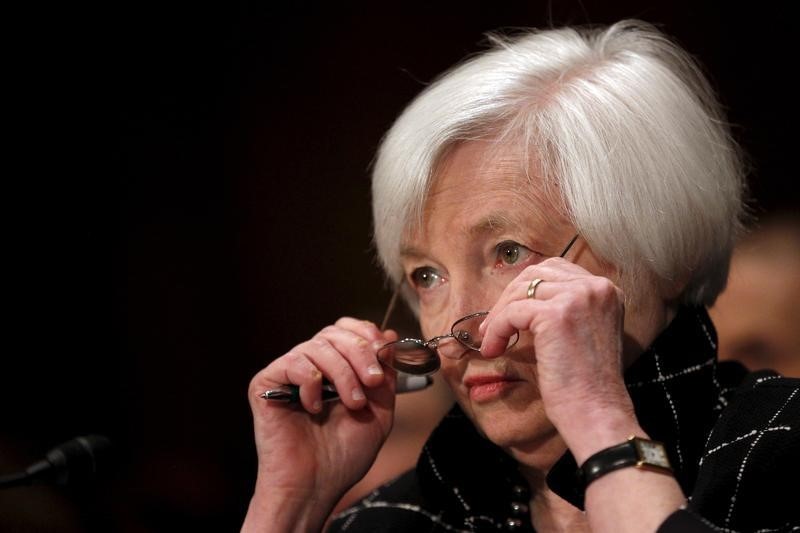* Wall St poised to open at high, European stocks upbeat
* Fed hike almost certain, all eyes on signals for further hikes
* Sterling weaker on UK wages disappointing, govt delays
* U.S. oversupply hurts oil prices again
By Vikram Subhedar
LONDON, June 14 (Reuters) - Stocks rose on Wednesday, but worries about stretched valuations and caution before a near-certain rate hike by the U.S. Federal Reserve kept their gains in check, while the dollar steadied against a basket of major currencies.
On Wall Street, the S&P 500 was poised to open at a record high with futures ESc1 SPc1 up 0.1 percent. Futures on the tech-heavy Nasdaq NQc1 rose 0.2 percent as the sector continues its recovery from last week's selloff.
For now, all eyes are on the Fed.
The widely expected quarter-point interest rate hike will take the Fed funds target rate above 1 percent for the first time since the immediate aftermath of the collapse of Lehman Brothers in 2008. participants' focus will be on signals on the frequency of further hikes and how the Fed plans to unwind its huge Treasury bond stockpile over the years ahead.
The U.S. central bank is scheduled to release its decision at 1800 GMT on Wednesday with a news conference to follow from Chair Janet Yellen.
"With financial conditions remaining supportive ... and US financials breaking higher, the Fed may see little reason to moderate its rate hike projections when meeting today," strategists at Morgan Stanley (NYSE:MS) said in a note to clients.
The U.S. bank expects the dollar to gain 2 percent against major currencies over the next few weeks.
On Wednesday, the dollar index .DXY barely budged as slightly firmer moves against the euro EUR= and yen JPY= were offset by losses against the commodity bloc of currencies, such as the Australian and Canadian dollars.
Worries about the pace of global growth and weakness in markets for the commodities they produce drove a 5-percent slide in the values of both Australia's AUD=D4 and Canada's CAD=D4 dollars between March and May.
Relatively upbeat economic data from China and a surge in expectations of higher Canadian interest rates have helped currencies of commodities-related economies.
In the UK, disappointing wage growth data and a report that a deal needed to form a new government could be delayed until next week hurt sterling GBP= , which gave up early gains.
The pound had been recovering from its almost 3 percent slide since Prime Minister Theresa May unexpectedly lost her parliamentary majority in a national election last Thursday.
"One of the things we thought was very positive for sterling was that we'd extended the life of the parliament to give a very large window after the end of the two-year negotiation period (on Brexit)," said Adam Cole, head of G10 currency strategy with RBC in London.
"That no longer looks like the case."
Optimism about the euro zone economy continued to underpin European equities, however, where the pan-European STOXX 600 .STOXX was up 0.6 percent, led by industrials and financials.
However, worries about equity valuations, particularly in the tech sector which nosedived last week, are creeping up among investors.
A record number of investors believes equities are overvalued and three-quarters say internet stocks are expensive or in a bubble, a Bank of America Merrill Lynch (NYSE:BAC) fund manager poll showed on Tuesday at Deutsche Bank (DE:DBKGn) warned that its European "complacency indicator", which measures valuations relative to market volatility, was at an 11-year high, and the bank expects economic momentum to fade in coming months.
Europe's benchmark bond yield held near seven-week lows ahead of the Fed decision.
In commodities, oil prices fell about 1 percent, on the backfoot again on worries about US oversupply. Brent crude oil LCOc1 was down 44 cents a barrel at $48.28 while U.S. crude CLc1 was 55 cents lower at $45.92.
